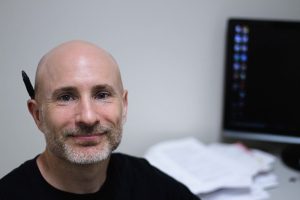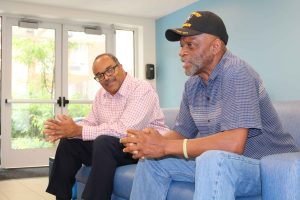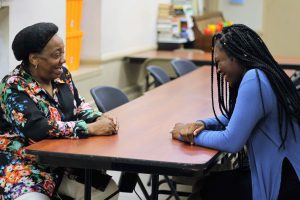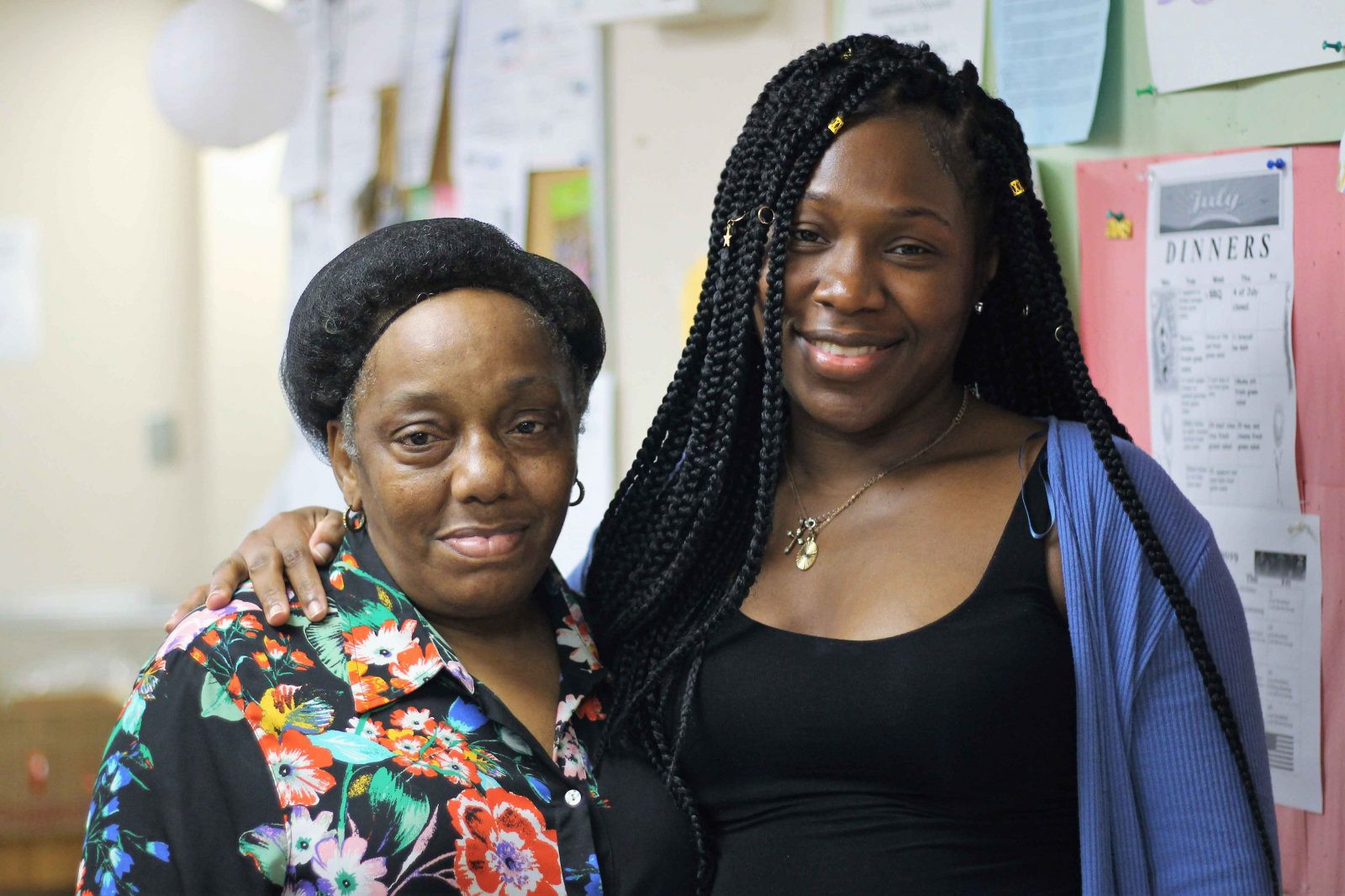“It’s a pleasure to have a roof over my head and have everybody here stick by me to make sure I keep a roof over my head. It's an honor,” Patricia said.
CSH spoke with supportive housing tenants, their case managers and other services staff to gain a better understanding of what “Healthy Aging” looks like in practice. Our conversations centered around the key challenges and opportunities tenants face as they age. CSH visited ICL’s Health Hub in East New York, which offers a broad range of health and case management services to members of the community; The Bridge’s Melrose Commons located in the South Bronx; and Goddard Riverside Community Center's Senate Residence located in the Upper West Side of Manhattan.
 Case managers and tenants across the board agreed that achieving healthy aging means accepting aging as a natural process and that certain adaptions are necessary to maintain a tenant’s independence. Dan, a case manager from Goddard Riverside explained “the nature of our job [is] to wear many hats and come up with creative solutions.” He explained, “people aren’t static, they’re always changing,” and facilitating healthy aging is about “monitoring people and seeing how they change and adapting” how we help them.
Case managers and tenants across the board agreed that achieving healthy aging means accepting aging as a natural process and that certain adaptions are necessary to maintain a tenant’s independence. Dan, a case manager from Goddard Riverside explained “the nature of our job [is] to wear many hats and come up with creative solutions.” He explained, “people aren’t static, they’re always changing,” and facilitating healthy aging is about “monitoring people and seeing how they change and adapting” how we help them.
Other common themes that emerged are not unfamiliar challenges for many providers: tenant access to transportation; having enough staff to provide quality, tailored services; ensuring housing accessibility; risk of social exclusion, long waits for medical care, and monitoring conditions and implementing improvements in scattered site locations.
 Regardless of these difficulties, the tenants had much to say about the exceptional quality of services they received regularly in supportive housing. Richard, now 62, had spent 20 years without a home. In the past he could not find the will to live but now he felt he had the resources and support to pursue his GED and hopes to enroll in college to study behavioral science.
Regardless of these difficulties, the tenants had much to say about the exceptional quality of services they received regularly in supportive housing. Richard, now 62, had spent 20 years without a home. In the past he could not find the will to live but now he felt he had the resources and support to pursue his GED and hopes to enroll in college to study behavioral science.
For Reginald, “support” was not only financial, but it could be mental and physical as well, depending on his needs on any given day. Regardless, he felt confident saying that there was always a member of the staff who would be there and willing to assist.
Chris, a proud card-carrying AARP member, is now at a stable place in life where he has selflessly adopted significant causes to support, donates to environmental organizations and enjoys learning about social issues.
The tenants all recognized in order to achieve and maintain healthy aging in supportive housing, necessary lifestyle adjustments needed to be made. Case managers agreed healthy eating habits, activity levels and getting to routine doctor’s appointment were three key areas clients needed to regularly assess. Taking advantage of essential benefits such as Medicare, Medicaid, and Meals on Wheels were also noted.

Each of the tenants we spoke with offer hope that achieving healthy aging and thriving in supportive housing are not unattainable goals, but may require the care and dedication of resourceful case managers and providers who think outside-the-box to offer age-appropriate, person-centered supports.
Living on the streets for 40+ years, Patricia never believed she would make it to older age and marveled at the thought of being called a senior. “I am a senior now. Thank God. Thank God I can say that now.”



